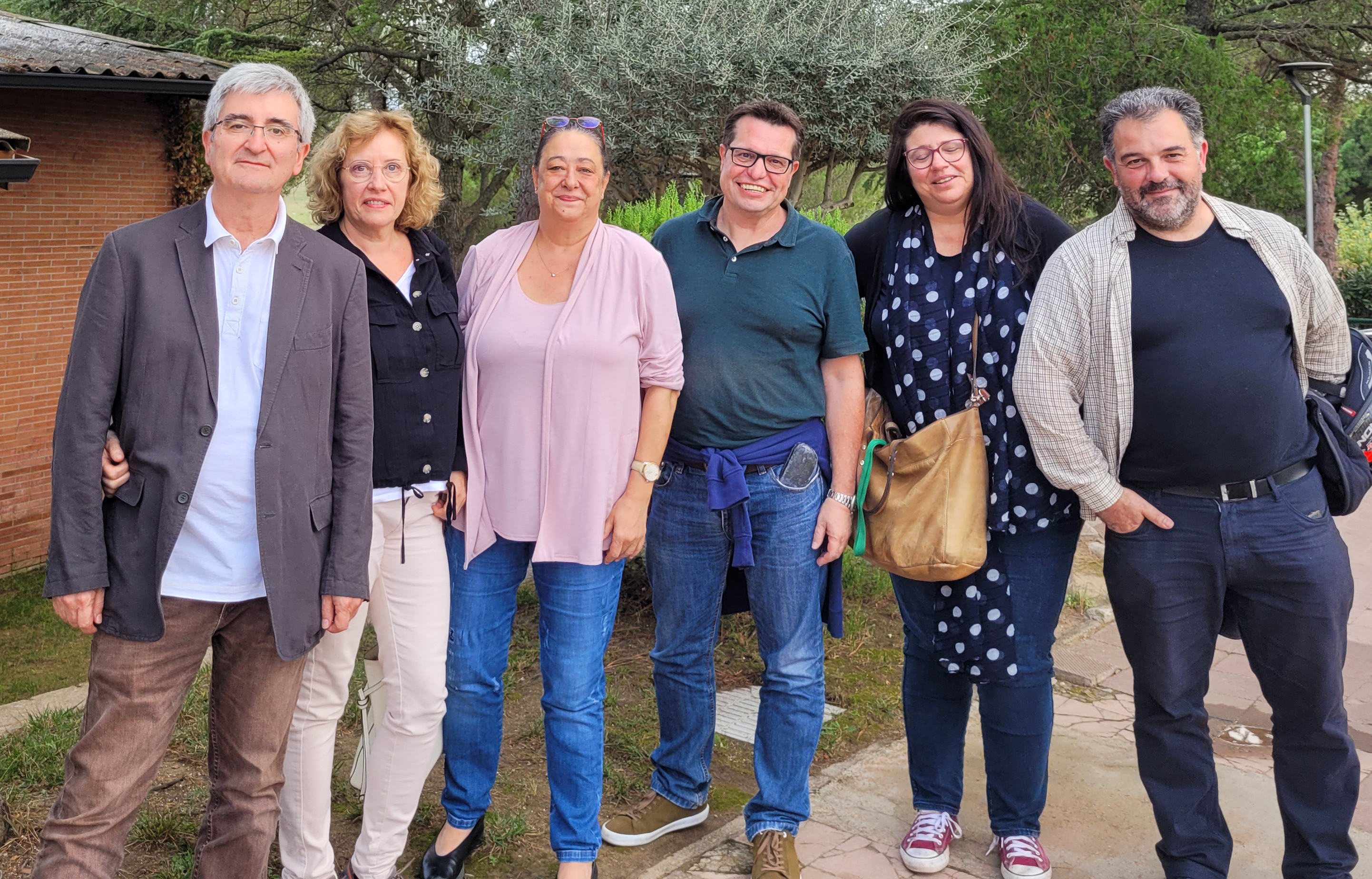These funds, coming from the Menkes International Association, will allow a research project to search for new biomarkers to establish administration and monitoring protocols for a new drug that could improve the lives of children suffering from this rare disease. The project is led by Mercè Capdevila, professor in the Department of Chemistry at the UAB.

The Universitat Autònoma de Barcelona (UAB) and the Menkes International Association (MIa) have signed a donation agreement for the value of 40,000 euros. This represents a strong boost to the research in Menkes disease, a rare and severe hereditary disease that appears in the neonatal period. The funding will be used to establish the administration and monitoring protocols for a new treatment that could improve the living conditions of children suffering from the disease, and make a step forward in the clinical trial.
The project is led by Mercè Capdevila, researcher in the Bioorganic and Bioinorganic Synthesis and Applications Research Group at the UAB Department of Chemistry, in collaboration with other groups from the UAB and the Institute of Neurosciences (INc-UAB), the University of Barcelona (UB), the Paediatric Institute of Rare Diseases (IPER) of the Hospital Sant Joan de Déu, the Menkes International Association, and the Copper(Less) Committee, which brings together world experts in the disease.
Menkes disease is caused by mutations in the ATP7A gene, within the X chromosome, which encodes for a copper transporter protein. This causes a multisystemic disorder in the metabolism of this essential element, characterized by a progressive neurodegeneration, marked alterations in the connective tissue and an abnormal, frizzy and sparse hair. It mainly affects men, while women are usually unaffected carriers. The Menkes International Association has so far registered 45 affected children worldwide.
Although the disease has been known since Menkes described it in 1962, still today its treatment is only symptomatic and does not prevent the progression of the disease. In 2020, however, a study in mice showed that administering copper (Cu) together with a molecule called elesclomol (ES) allowed the Cu-ES complex to reach the brain cells, preventing neurodegenerative changes and making the animals have a normal survival. The drug was thus presented as a promising strategy for the treatment of the disease.
The challenge for studies towards an application in humans is that it is not easy to establish an appropriate dosage for a baby and that copper has a small therapeutic window: the concentration must not exceed certain safety thresholds and it is essential to be able to follow with reliable measurements day by day the levels of copper in the body.
Searching for more reliable biomarkers of blood copper levels
The project which begins now focuses on studying whether measuring the concentrations of a group of proteins called metallothioneins can provide more reliable guidelines for gradually adapting the dose of Cu-ES for each child.
"We want to determine if metallothioneins can be used as biomarkers for copper levels in Menkes patients, as the scientific literature has pointed out. Until now, these levels have been analyzed with other markers, but they are not as accurate and precise as we need", explains Mercè Capdevila, professor in the Department of Chemistry at the UAB and international expert in the field of metallothioneins.
The researchers will conduct the study using enriched fluids and blood and urine samples from children affected by the disease and from the only child in the world who is receiving the drug as compassionate medicine with the exceptional approve of the Spanish Agency for Medicines and Health Products (AEMPS).
Before the end of 2023, the team expects to successfully complete this first stage. "Our studies must also allow progress towards the efficiency, biosafety and toxicity tests of Cu-ES which are required to apply for a clinical trial", concludes Mercè Capdevila.
The other members of the team are: María Isabel Pividori and Òscar Palacios, professor and associate professor, respectively, at the UAB Department of Chemistry; Juan Hidalgo, professor in the UAB Department of Cell Biology, Physiology and Immunology and researcher at the INc-UAB, and Javier Carrasco, from the Molecular Biology Service of the INc-UAB. Ricard Albalat, professor in the UB Department of Genetics, Microbiology and Statistics and member of the UB Institute for Biodiversity Research Institute (IRBio) is also involved in the project. Francesc Palau from the Paediatric Institute of Rare Diseases (IPER) of the Sant Joan de Déu Children's Hospital, and adjunct professor of paediatrics in the UB Department of Surgery and Medical-Surgical Specialties, and Natalia Serrano, both researchers and experts from the SJD Research Institute, also collaborate.
The donation from the Menkes International Association, which will enable the recruitment of a postdoctoral researcher, has been possible thanks to the support of the Belgian Foundation of Menkes Voor William, created from a child affected from Menkes who, unfortunately, died last summer. His family has decided to promote scientific research in order to make progress in curing this rare disease and thus help other families.
The study will be possible thanks to the donation made to the UAB, through the Menkes International Association, by the Belgian Menkes Voor William Foundation, created by the family in memory of William. Right: Members of the Copper(Less) Committee with Marco, the boy who is receiving compassionate treatment with the Cu-ES complex, and his mother, Aurora Mateos, president of the Menkes International Association, during a congress on Menkes disease held in Sorrento last September, where researchers presented the results of the first nine months of treatment.
Menkes International Association webpage: https://menkesinternational.com/






